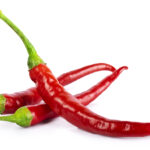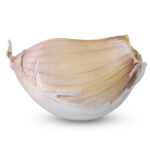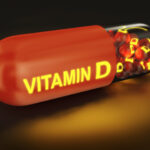According to a report by Times of India, low blood pressure, also known as hypotension, can cause symptoms such as dizziness, fainting, fatigue, and difficulty concentrating. While medical intervention may be necessary in severe cases, there are also several home remedies that can help manage low blood pressure.
One of the remedies mentioned is increasing salt intake. Consuming a moderate amount of salt can help raise blood pressure levels. However, it is important to consult a healthcare professional before making any significant changes to your diet.
Another remedy suggested is staying hydrated. Dehydration can contribute to low blood pressure, so drinking an adequate amount of water throughout the day is crucial.
Additionally, the article recommends consuming caffeine in moderation. Caffeine can temporarily raise blood pressure, so having a cup of coffee or tea can provide a short-term boost. However, excessive caffeine intake should be avoided as it can have negative effects on overall health.
Engaging in regular exercise is also mentioned as a way to manage low blood pressure. Physical activity helps improve circulation and can help regulate blood pressure levels.
Finally, the article suggests wearing compression stockings. These stockings apply pressure to the legs, which helps improve blood flow and prevent blood from pooling in the lower extremities.
It is important to note that these home remedies may not be suitable for everyone, and it is always best to consult with a healthcare professional for personalized advice.
Summary: Home Remedies to Raise Blood Pressure
- Increase Salt Intake: Consuming more salt can increase blood pressure, as sodium has a direct effect on blood pressure levels. However, it’s important to consult with a healthcare provider before increasing salt intake, especially if you have heart or kidney conditions.
- Drink More Water: Dehydration can lower blood pressure. Drinking more water and staying hydrated can help increase blood volume and blood pressure.
- Eat Small, Frequent Meals: Large meals can lead to a drop in blood pressure as your body works to digest the food. Eating smaller, more frequent meals can help prevent this drop.
- Avoid Alcohol: Alcohol can lower blood pressure further, so limiting or avoiding it can be beneficial for hypotension management.
- Wear Compression Stockings: These can help reduce the pooling of blood in the legs and alleviate the symptoms of orthostatic hypotension (a form of low blood pressure that happens when you stand up from sitting or lying down).
- Avoid Sudden Position Changes: Standing up too quickly can cause a sudden drop in blood pressure. Rising slowly and sitting on the edge of the bed for a moment before standing up can help.
- Increase Caffeine Consumption: Caffeine can temporarily increase blood pressure, but it’s important to discuss this with a doctor, as the effects can vary from person to person.
- Regular Physical Activity: Regular, moderate exercise can help promote a healthy blood pressure. However, it’s important to discuss the type and amount of exercise with a healthcare provider.
- Drink Small Amounts of Fluids Throughout the Day: Instead of drinking large amounts of fluids at once, sipping small amounts throughout the day can help maintain blood pressure.





